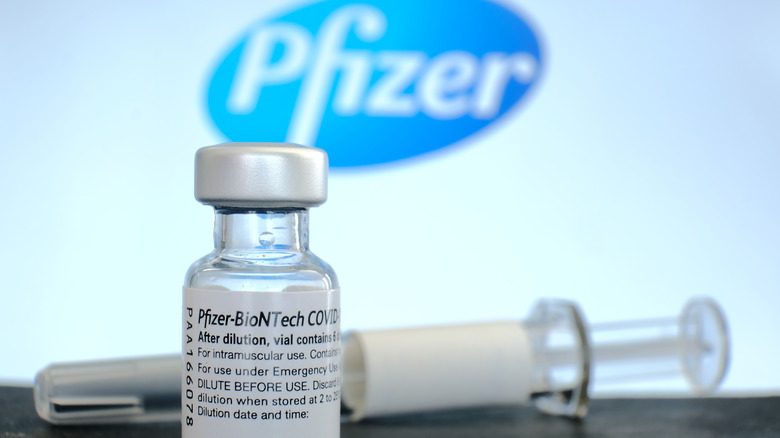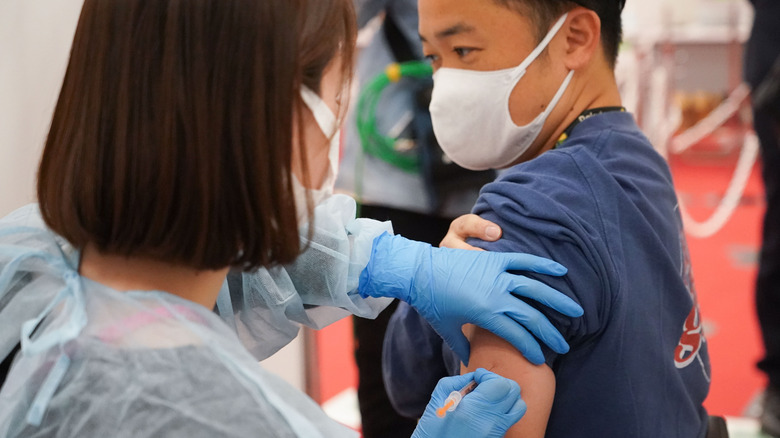Why The FDA Just Authorized A Fourth Dose Of The COVID-19 Vaccine
The COVID-19 virus is still circulating among the broader population and infecting a significant number of people. As is common knowledge, those who have not been vaccinated are at a greater risk of developing serious, potentially life-threatening symptoms. The CDC says everybody who is eligible should get vaccinated, which in the U.S. means getting two primary COVID-19 mRNA shots or the single-dose Johnson & Johnson vaccine, as well as a booster when enough time has passed.
According to the New York Times, officials from Pfizer and Moderna are now making moves toward releasing a second booster shot for their respective mRNA vaccines. The widespread administration of these vaccines, which have been useful in greatly diminishing the impact of COVID-19, subsequently helps keep hospitals clear so they can continue to safely treat patients who have other diseases and injuries.
On March 29, the FDA authorized a second booster shot of Pfizer and Moderna's mRNA vaccines for patients 50 years of age and older, as well as for some people who have compromised immune systems. As part of its announcement, the agency said there aren't any additional safety risks with a fourth shot, which it claims will help protect against severe outcomes in vulnerable individuals. This decision was informed by several studies, including one from Research Square that concluded people aged 60 and above are 78% less likely to die from COVID after receiving the fourth vaccine dose.
In explaining the rationale for authorizing another booster dose, FDA Center for Biologics Evaluation and Research director Peter Marks, M.D., Ph.D., said, "Current evidence suggests some waning of protection over time against serious outcomes from COVID-19 in older and immunocompromised individuals. Based on an analysis of emerging data, a second booster dose of either the Pfizer-BioNTech or Moderna COVID-19 vaccine could help increase protection levels for these higher-risk individuals."
Vaccination remains key to protecting against the virus
COVID-19 has evolved over the past two years. The widespread Omicron subvariant, which succeeds the Delta variant that made headlines in 2021, is the latest cause for concern among health authorities, not the least of which is because it spreads much faster than its predecessors.
Those who don't (or can't) get vaccinated are at a higher risk of developing serious or potentially fatal symptoms upon contracting the COVID-19 virus. This, due to how easy it is to spread Omicron, makes going outside and interacting with other people far more dangerous for those who are still at high risk of severe complications. It also creates a potential risk of overload on hospitals that may not be equipped to handle too many patients at once, NPR reported in December 2021.
Last summer, the momentary break in pandemic-related restrictions, including mandatory masking in public indoor spaces, was interrupted by the rapid onset of the Delta subvariant in late June. The rapid change compelled authorities to reintroduce safety measures in an effort to prevent medical care systems from exceeding their capacities, which has been a frequent problem throughout the pandemic.
Worldometers reports more than 486,336,077 COVID-19 cases and over 6,159,980 COVID-19-related deaths have occurred since the global COVID-19 pandemic began at the beginning of 2020.

